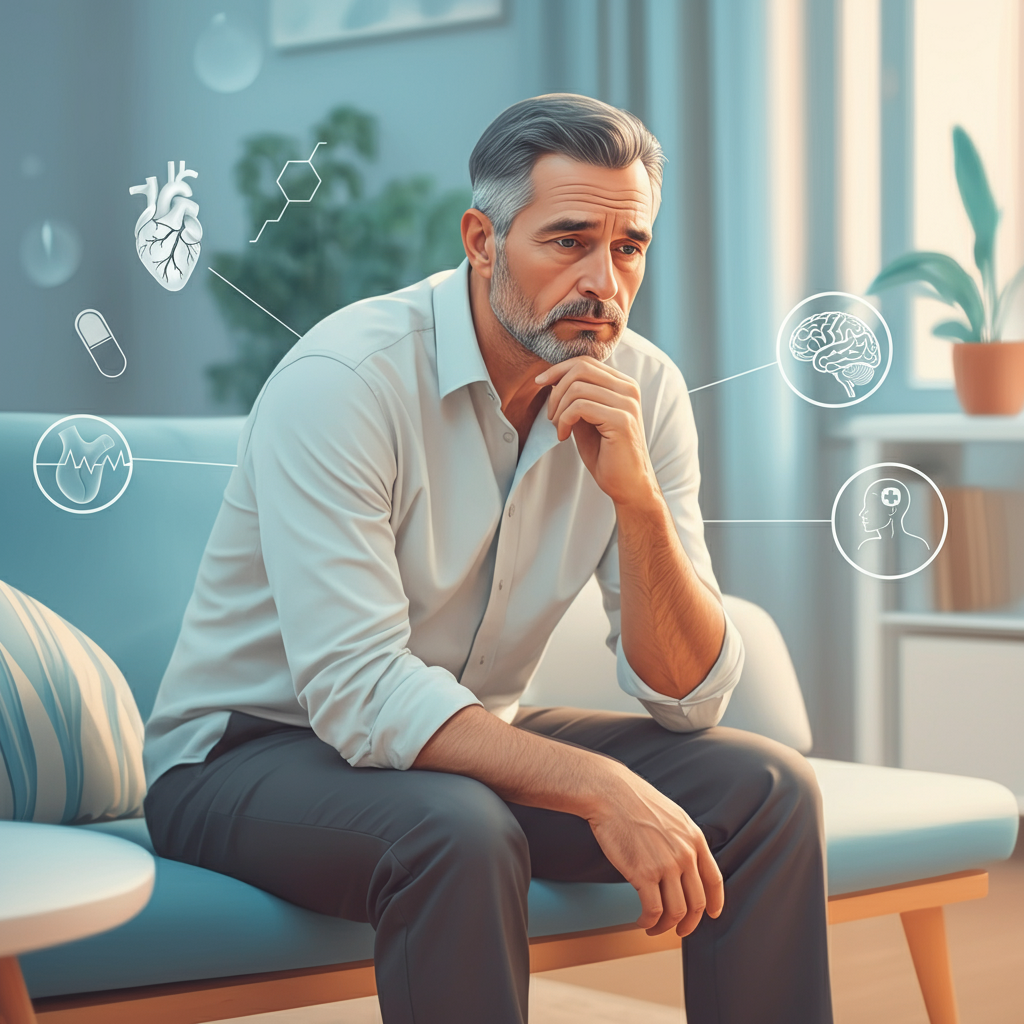Imagine that your smartwatch vibrates with a message that isn’t about your steps or heart rate. Instead, it suggests that you chat with someone since your watch has detected symptoms of depression. This may sound like science fiction, you think? But wearable devices that detect depression are more realistic than you might imagine.

While wearable technologies continue to advance, tech companies and researchers are examining whether these wearables can evolve into devices that detect depression and other mental health issues. The big question is whether we are exploring groundbreaking medical innovations or merely another buzzword in the tech industry. Let’s explore the fascinating intersection of the mind and technology for wearables.
The Promise of Wearable Devices That Detect Depression
The idea behind wearables that detect depression is quite convincing. Depression can manifest itself through changes in physical behaviour and physiological patterns that wearable devices are equipped to track. For example, people suffering from depression are often prone to experiencing irregular sleep patterns, less physical exercise, as well as variations in heart rate and different patterns of social interaction.

In addition, traditional depression screening relies on self-reporting, which is often inconsistent and subjective. Wearable devices, on the contrary, constantly record objective information about your everyday habits and physical reactions. Monitoring your activity continuously could identify early warning signs before people even know they’re struggling.
Additionally, the accessibility aspect can’t be ignored. Many people are using fitness trackers and smartwatches, and integrating the monitoring of mental health can help make depression screening more common and less stigmatized compared to traditional methods.
The Science Behind the Technology
Numerous research studies have demonstrated encouraging results within this area. Researchers have discovered that depression can be linked to certain patterns that are evident in the data wearable devices already gather. For instance, researchers from Northwestern University found that people suffering from depression are more erratic in their daily routines and also spend more time in fewer locations.
In addition, studies have revealed links between depression, heart rate variation, sleep quality indicators, and levels of physical activity. These are all information points that modern wearables monitor with increasing precision. A few studies have also looked at the use of smartphones’ sensors that detect depressive symptoms using the patterns of typing, voice analysis, as well as GPS data.

It’s crucial to keep in mind that correlation doesn’t necessarily mean that causation is the case. Even though these patterns are evident but the problem is in developing algorithms that are capable of separating the temporary mood swings and those that are clinical depression. Additionally, individual differences can mean that the symptoms of depression in one person could be totally normal for someone else.
Current Limitations and Challenges
Despite the promising possibilities, however, there are a lot of challenges to be overcome. For starters, depression is a complex mental health issue that cannot be reduced to a few numbers. The experience of depression for humans is a combination of cognitive, emotional, and social elements that wearables can’t measure.
In addition, the possibility of false positives as well as false negatives is high. Imagine being alerted to depression in the midst of a stressful working week, or even worse, not recognizing the first signs of depression since your levels of activity seem normal. These scenarios show the potential for excessive anxiety as well as reckless negligence.

Privacy issues also play a major role in this debate. The data on mental health is highly sensitive, and the thought of tech companies collecting and analysing the data raises serious questions regarding data security and the consent of the user. Who can access the data, as well as how it is utilized beyond health monitoring?
Real-World Applications and Examples
Many companies are already looking into this type of technology. Fitbit has collaborated with researchers to study anxiety and depression via wearable data. Apple has conducted studies that examine the relationship between Apple Watch data and mental health issues. While companies such as Ellipsis Health are developing voice-based screening tools for mental health, which could be integrated with wearable devices.
But the current apps are focused on general well-being and stress management, rather than detecting depression in clinical patients. Apps such as Headspace and Calm work with wearables that provide mindful reminders to be mindful that are based on indicators of stress; however, they are not capable of giving medical diagnoses.

The medical field is cautiously hopeful. Some healthcare professionals are beginning to integrate wearable data into their patients’ examinations, but it usually serves as an additional information source instead of an essential diagnostic tool.
The Bottom Line is: Science with Important Caveats
So, are wearables for detecting depression real or just hype? The answer lies between the two. The scientific basis is solid and getting stronger with each research. Wearable devices can identify symptoms of depression, and this technology has the potential to increase awareness of mental health issues and provide early intervention.
Yet, we’re not far away from having wearables that can accurately diagnose depression. Current technology is better at monitoring general mental health and identifying potential issues for evaluation by a medical professional, instead of making definitive medical decisions.
Imagine this in the following way: your wearable gadget could be able to tell you that you’ve had trouble sleeping or not moving as much, and show signs of stress. The data could prompt you to assess your mental health or seek help from a professional. It’s a good idea even if your device isn’t able to determine whether you suffer from depression.
Looking Toward the Future
The future of wearables that detect depression is likely to involve integration with other systems for health monitoring and medical oversight by a professional. Instead of being individual diagnostic tools, they will likely be used as early warning systems that function in conjunction with traditional mental health services.
As machine learning continues to develop its accuracy, these systems will certainly increase. But the human aspect of the mental health system is not going to disappear. The most promising apps will likely blend the information from wearables that is objective with the personal insights that only healthcare professionals who are human provide.
In the meantime, you should think of these new technologies as potent instruments for self-awareness, not medical devices. If your wearable shows that you’re experiencing mood or stress changes, consider it an opportunity to pay more focus on your mental well-being and not as a medical diagnosis.
The intersection of wearable tech and mental health provides an exciting area that has the potential to change the way we think about screening for depression and its prevention. Although we’re not yet there, the path towards better monitoring of mental health is certainly worth watching.



